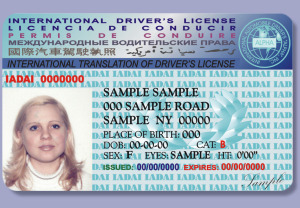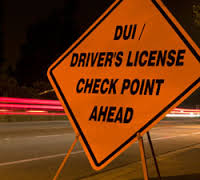What is a Grand Jury’s Role in a Criminal Case
There have been a lot of headlines recently regarding a grand jury in St. Louis County, Missouri investigating Officer Darren Wilson in the shooting death of Michael Brown. People have a lot of questions about exactly what a grand jury is and what is its function. To sum it up, a grand jury is a panel of citizens that determines whether there is probable cause that 1) a crime has been committed and 2) the crime was committed by the accused. In order to fulfill its job as a quasi investigatory agency, a grand jury has subpoena powers and can compel witnesses to testify. The grand jury can also request that an agency, individual or company produce documents and records. There is typically no judge and the prosecutor presents what evidence he or she wants the grand jury to hear. The grand jury can ask questions and request more information.
Unlike other court proceedings, grand jury proceedings are private. An individual under investigation by a grand jury does not have the right to a public grand jury. The lack of transparency in the grand jury system is one of the main complaints in the Michael Brown matter. Another difference between grand jury proceedings and public trials is that the rules of evidence do not apply in grand jury proceedings. Much like a finding of probable cause by a court, the grand jury is permitted to take into account evidence that will not be admissible at trial. Certain evidence, for example hearsay, is regularly excluded from trial testimony, but regularly used to determine probable cause. In addition, the prosecution can use evidence that might later be excluded because it was seized in violation of the defendant’s constitutional rights.
Once the grand jury has heard the evidence, the grand jury either issues a “true bill of indictment” or “no true bill of indictment.” A true bill of indictment is a document formally charging an individual with a criminal offense. No true bill of indictment is a document stating that there is no probable cause to believe that the suspect committed a criminal offense. Remember that the standard of proof is “probable cause” meaning more likely than not or by a preponderance of the evidence.
Grand Juries in Florida Criminal Cases
Florida does not require that all felonies be charged by use of a grand jury. Florida is what we call an “information jurisdiction.” Instead of summoning a grand jury to issue an indictment, the Office of the State Attorney can simply review the probable cause affidavit submitted by the arresting agency and if the prosecutor reviewing the affidavit determines that there is probable cause, the prosecutor issues an “information” which is the formal charging documents for the crime. A criminal defendant in Florida can still challenge the finding of probable cause by submitting a motion to dismiss for lack of probable cause prior to his or her arraignment.
A grand jury is only required to charge individuals with capital offenses pursuant to Article I, Section XV of the Florida Constitution. This means that a prosecutor can not use an information to charge an individual with a crime when the suspect could receive the death penalty if convicted. However, Article I, Section XV of the Florida Constitution does not limit the role of a grand jury to only charging capital cases. Rather, Article I, Section XV limits the ability of The Office of the State Attorney in its ability to file an information.
A grand jury has exclusive authority to charge a capital crime, the state attorney has concurrent authority to charge other crimes. Often times this leads to non-capital cases being presented to a grand jury. For example, public corruption cases are often referred to a grand jury to avoid any appearance of impropriety. All police involved shootings, at least in Broward County, go to a grand jury for investigation whether or not the police or state attorney believe the officer acted appropriately. Again this is done to avoid any appearance of impropriety.
A Grand Jury Will Indict a Ham Sandwich
The first time that I ever heard this was with regard to the JonBenet Ramsey case when the parents were not indicted for her murder. I have significant experience representing individuals who were charged by a grand jury from my time as a practicing attorney in North Carolina. An attorney is typically retained after the initial arrest, but prior to the grand jury hearing. Out of the hundreds of felony cases that I handled in North Carolina, ranging from low level felonies to drug trafficking and attempted murder, I never had 1 client that was not indicted. I personally never saw “Not a True Bill” marked on the charging instrument. So the statement that a grand jury will indict a ham sandwich is a rather humorous way of saying that it is not very difficult to get the grand jury to issue a true bill.
Does the grand jury ever get it wrong? Absolutely. When they do get it wrong is when they indict somebody for a crime that later gets dismissed or the defendant is found not guilty. Based on my experience, the standard of proof required to indict is so low and the rules are so relaxed that true bill of indictment is a virtual guarantee if there is even a hint of evidence that an individual broke the law.
What Does this all Mean?
A grand jury is a group of citizens that are summoned as an investigatory body to determine if there is probable cause to charge an individual with a crime.
My Prediction on the Michael Brown Case?
No idea. I haven’t followed it closely enough to have an educated opinion. I won’t be surprised either way.
For additional information, please contact
The Law Offices of Michael A. Dye, PA, 1 East Broward Boulevard #700, Fort Lauderdale, FL 33301 (954)990-0525 or
The Law Offices of Michael A. Dye, PA, 2 S Biscayne Blvd, Miami, FL 33131 (305)459-3286




